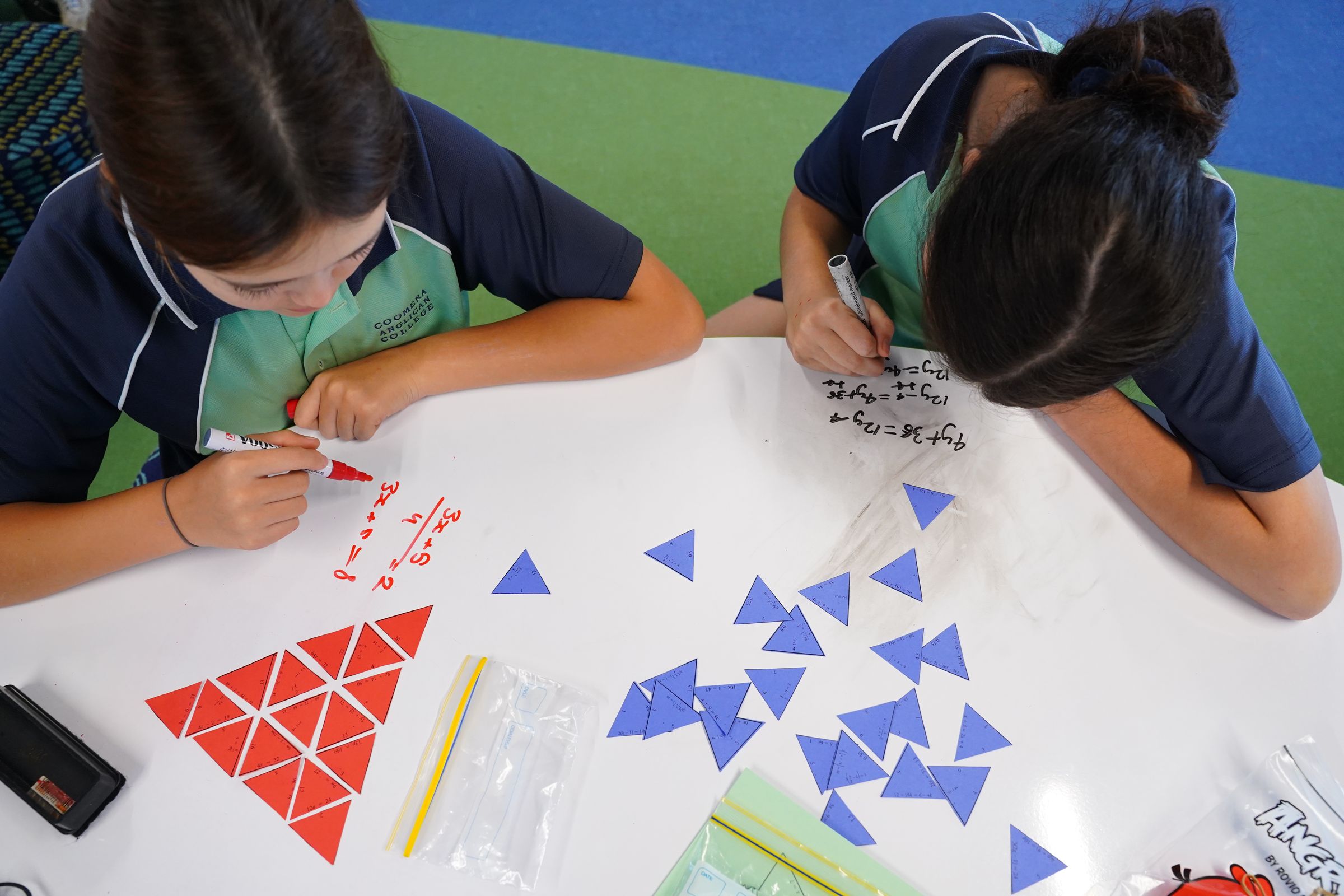As a child, my earliest memories of learning Mathematics were through hands-on resources, activities and challenging gameplay.
Engagement in Maths
Engagement in Maths

This was in England in the 1970s. I remember the classrooms opening with the other classes and we were led on a path of discovery by a teacher who clearly had a passion for learning Mathematics. When I moved to Australia, I was met with a single class, and everyone sat down quietly and simply listened to the teacher. I did not experience much success in my first year in a new country, until one day the teacher asked us what we thought ≠ meant. I sat quietly whilst listening to the other students give answers that did not make any sense in my world, I decided to be brave and raised my hand and simply stated ‘not equal to’. I remember my teacher being elated that I responded with the answer and I got to receive a stamp on my hand. Thus began my love for the beauty of Mathematics.
I decided to become a Mathematics teacher, to help make my subject accessible for all students, not just those who experience success in assessment. But to make it enjoyable and have all students be curious and intrigued. In the 21st century, students have access to information at their fingertips with the click of their fingers and as educators, we need to equip our students with the appropriate skills to help them flourish in the everchanging world.
Mathematics sometimes has a negative image from people in society. Often when people ask the question what do you do? The answer of ‘I teach maths’ results in the response of ‘Oh I hated Maths when I was at school’. Is this because the person responding never experienced success or joy in such a wonderful subject? I then try and convince them that they do not really dislike Mathematics and point out evidence in that moment. For example, design around us involving shapes, money, or even simply angles existing on parallel lines they can see in that time. I am sure people think I am a bit crazy.

Using a lightboard means a student can not only see the mathematics being taught but also the teacher at a board and their facial expressions.
|
|
In the classroom today, not only are students exposed to some direct teaching and demonstration of face-to-face examples, but also, they have access to online technologies that have instructional videos. At Coomera Anglican College we use personally created videos and through these we insert questions and monitor individual student’s progress. Students have access to these videos not only to assist with their understanding, but also for revision or if they have missed a lesson. This also allows extra time within the classroom to explore thinking processes in Mathematics, also it assists the teacher in delivering a lesson that is aimed at the students and much more engaging. It allows for the teacher to receive feedback from all students, including those who are hesitant in asking questions. This is called a Flipped learning approach and allows for more activities in the classroom that facilitate students to develop their thinking skills and develop a deeper understanding of the subject content.
The Mathematics department creates their own videos, using a lightboard. This means a student can not only see the mathematics being taught but also the teacher at a board and their facial expressions to further engage the students.
We need to understand that the youth of today are growing up in a society that is very different from the 70’s, 80’s, 90’s and even the early 2000’s. Students are exposed to a lot of technological stimuli through phones, tablets, laptops - so much information is on tap for them. We need to be innovative in our teaching approach and meet the needs of our learners as they will be the adults of the future. Student acquisition of knowledge needs to be from a variety of mediums whether it be direct teaching, videos, or student investigative activities that spark curiosity. At the same time Mathematics education needs to be relevant to them in the present and the future, whilst still honouring the beauty in this subject area.
Type on the line above then press the Enter/Return key to submit a new search query